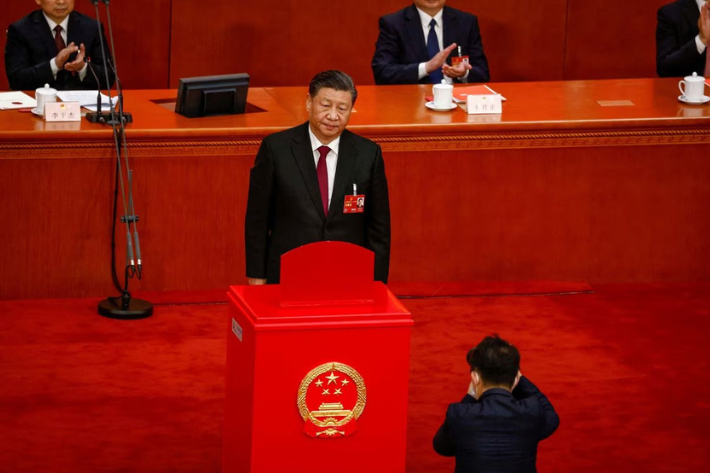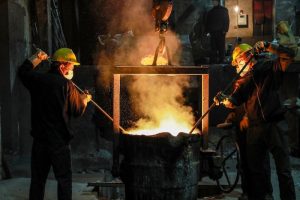Xi Jinping secured a precedent-breaking third term as president of China on Friday during a session of China’s rubber-stamp parliament, the National People’s Congress (NPC).
Nearly 3,000 NPC members voted unanimously in the Great Hall of the People for the 69-year-old Xi in an election in which there was no other candidate.
Xi extends his tenure for another five-year term amid increasingly adversarial relations with the US and its allies over Taiwan, Beijing’s backing of Russia, trade and human rights. He has taken China on a more authoritarian path since assuming control a decade ago.
Also on AF: China to Form National Data Bureau, Eyes Smart Cities Future
Xi set the stage for another term when he did away with presidential term limits in 2018. He has become China’s most powerful leader since Mao Zedong, who founded the People’s Republic.
The presidency is largely ceremonial, and Xi’s main position of power was extended last October when he was reconfirmed for five more years as general secretary of the central committee of the Communist Party.
Russian President Vladimir Putin was among the first foreign leaders to congratulate Xi on his third term. The two sealed a “no limits” partnership in February last year, days before Russia launched its invasion of Ukraine.
Economy in focus
Domestically, China faces a challenging recovery from three years of Xi’s zero-Covid policy. The regime was abruptly dismantled in December following historic nationwide protests against the stifling curbs.
During Friday’s session, Xi and dozens of other top leaders on the stage did not wear masks but everyone else in the auditorium did.
China also needs to shore up fragile confidence among consumers and businesses and while tackling weak demand for its exports.
The economy grew just 3% last year, among its worst performances in decades. During the parliament session the government set a modest growth target for this year of just around 5%.
“In his third term, Xi will need to focus on economic revival,” said Willy Lam, senior fellow at the Jamestown Foundation, a US think tank.
“But if he continues with what he has been doing – tighter party and state control over the private sector and confrontation with the West, his prospects for success won’t be encouraging.”
New leadership
During Friday’s voting, Xi chatted with premier-in-waiting Li Qiang, who is poised to be confirmed to China’s second-highest post on Saturday. The role will put the former Shanghai party chief and Xi ally in charge of the economy.
Other Xi-approved officials are due to be elected or appointed to government posts during this weekend. They include vice premiers, a central bank governor and numerous other ministers and department heads.
The parliament on Friday also elected Zhao Leji, 66, as parliament chair and Han Zheng, 68, as vice president. Both men were from Xi’s previous team of party leaders at the Politburo Standing Committee.
The annual parliamentary session will end on Monday, when Xi will give a speech that will be followed by a media question-and-answer session by Li.
- Reuters, with additional editing by Vishakha Saxena
Also read:
China Plans New Financial Regulator, to Scrap Banking Watchdog
China to Raise Defence Spending Faster Than Growth Forecast
Money Alone Can’t Rescue China’s Chip Sector, Experts Say
Billionaire Investor Mobius ‘Can’t Get His Money Out of China’
China Premier Stresses ‘Stability’ in Congress Report – Nikkei
























